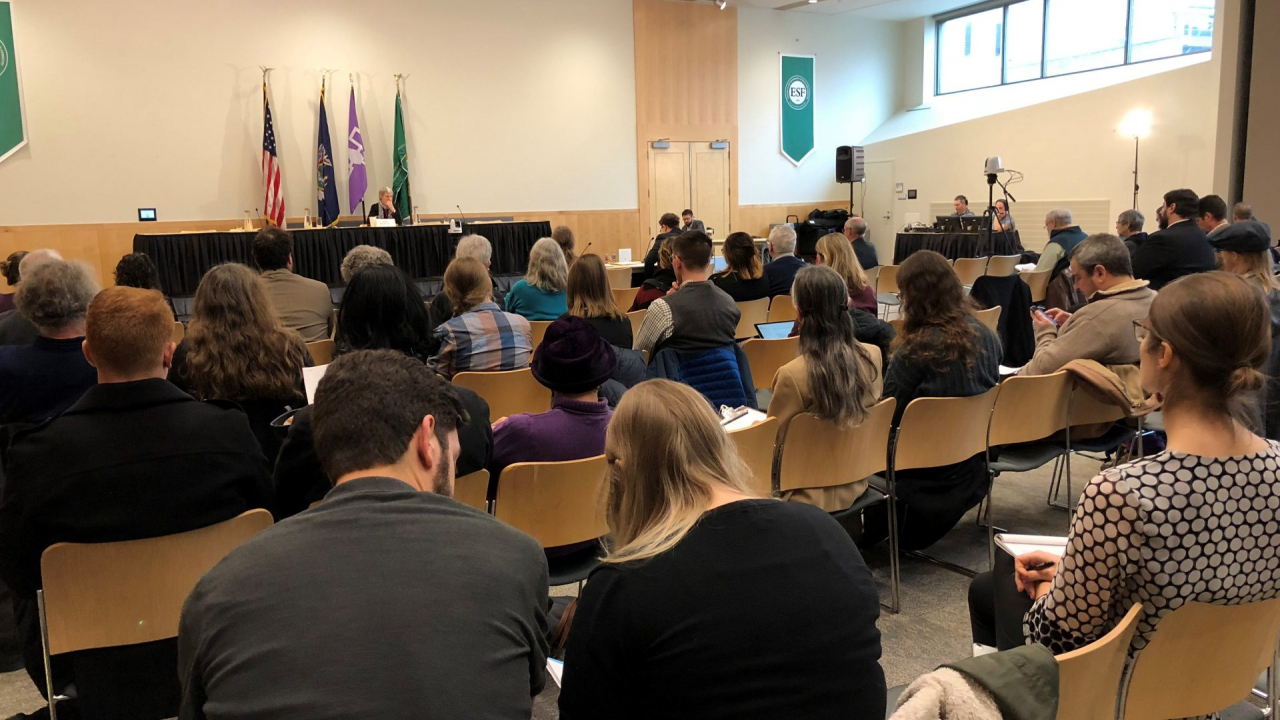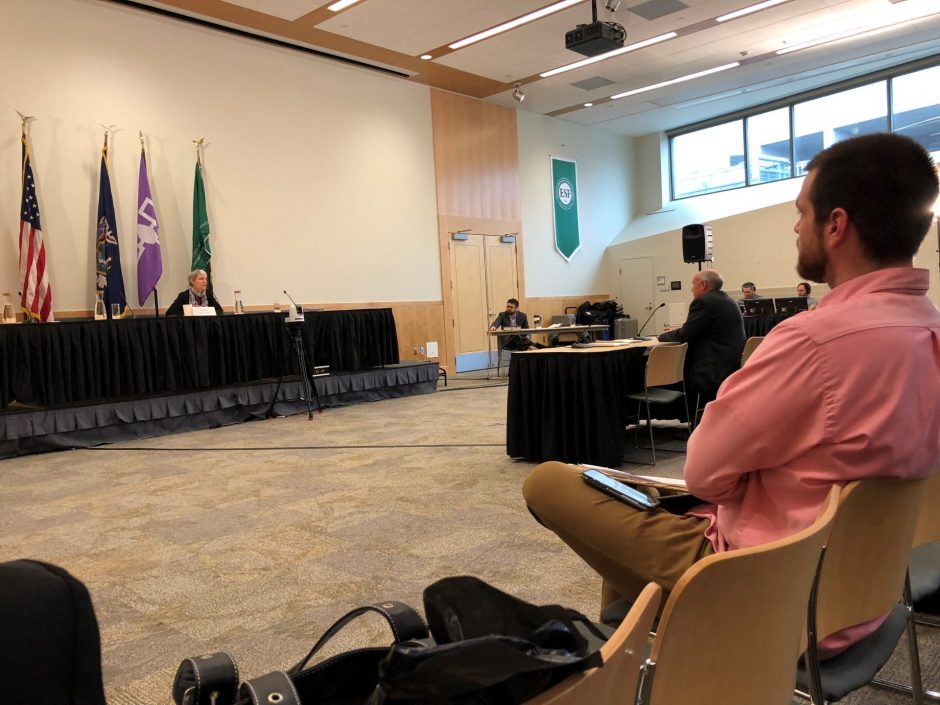
SYRACUSE, N.Y. (NCC NEWS) — New York State Senator Rachel May presided over a public forum in Syracuse Feb. 28 for a bill that would eliminate fossil fuel use in the state by 2050.
A motley crew gathered inside SUNY ESF’s student center for the morning meeting, the large majority of them proponents of the Climate and Community Protection Act that Senator May co-sponsors. A mix of politicians, professors, and concerned citizens emphasized the environment’s dire straits and advocated for the bill’s passage.
“This is, in my opinion, the kind of bold policy response we need for the existential crisis of our time,” said Sarah Pralle, associate professor of Political Science and environmental policy expert at Syracuse University. “Small, incremental policy changes may have been appropriate if we had taken the issue seriously many decades ago. But we didn’t act, as you know, in any significant way, and the longer we wait, the more dramatic our policy response has to be.”
The bill would establish the New York State Climate Action Council, and would require 50 percent of all electricity to be generated with renewable energy by 2030, and a complete rejection of fossil fuels 20 years later. Slightly under half of the State Senate sponsors the bill; it is currently being debated in committee. Some speakers at the forum noted that a state response to climate change is necessary because they believe federal actions (like the proposed Affordable Clean Energy rule, or ACE) have not helped.
“The fact that ACE would result in an increase in greenhouse gas emissions in 28 percent of electricity-generating facilities challenges whether or not it’s even viable under the Clean Air Act,” explained Charles Driscoll, Professor of Environmental Systems at Syracuse University. “It certainly has important implications for states, like New York State, because it’s going to shift the burden for reducing carbon dioxide from the federal level to the state level.”
“We face a very, very serious challenge,” said Joe Heath, attorney for the Onondaga Nation. “If we use the creativity that’s inherent in our democratic system, we can meet this challenge. If we don’t, history’s gonna judge us, and we’ll be in the same category as Nero, who fiddled while the Earth burned.”
While every speaker agreed that addressing climate change requires immediate action, not all of them agreed that the bill being debated is the correct way to go about it. Financial feasibility was brought up several times. One speaker testified that competitive environmental grants would harm disadvantaged communities, while others claimed that the cost of switching to renewable energy would unfairly burden local legislatures.
“We are reliant on market-based solutions because we don’t have the public resources available to build them ourselves,” said J. Justin Woods, the Cayuga County Administrator. “The investment from a legal, technical, and substantive experience framework is difficult to develop and grow locally.”
“My belief is that the biggest obstacle to achieving these things is political will,” said Chris Carrick of the Central New York Planning and Development Board. “The technology exists today.”
“There’s no problem that money can’t solve,” Carrick said to laughter and scattered applause.





